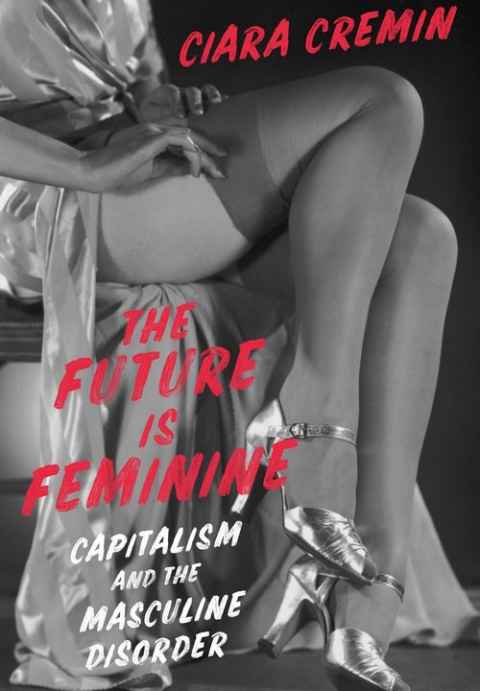Masculinity is a curse on men and women: new book
17 June 2021
Masculinity is a generic disorder of a sick society that afflicts both men and women alike, according to a new book by Ciara Cremin.

This is the provocative premise of The Future is Feminine : Capitalism and the Masculine Disorder (Bloomsbury, 2021) by Dr Ciara Cremin, a sociologist from the University of Auckland.
Coming from the perspective of a trans woman raised to be a man, Dr Cremin believes the traits that have become associated with masculinity, particularly those which suppress tenderness and compassion in favour of aggression and dominance, are not only harming ourselves and the planet, but are perfectly suited to the needs of capitalist societies.
She makes a distinction between masculinity and being male, and builds a strong case for affirming qualities that we have ascribed ‘feminine’, like nurturing and empathy, as the only way forward for the human race.
"‘Masculinity’ is a porous term, it can mean many things, but whatever traits are associated with it, none of them are intrinsic to the male sex.”
She says males are pressured to repudiate the feminine above all else.
“The French sociologist Bordieu wrote in 2001 that ‘being turned into a woman is the worst kind of humiliation to be inflicted on a man’, while American psychoanalyst Stoller said, ‘The first order of business in being a man is, don’t be a woman’.”
All manner of crimes are committed by men who have felt humiliated and needed to prove themselves stronger.
Dr Cremin argues that instead of rejecting femininity as in some way weak or inferior, on the contrary, everyone, whether male, female, intersex, children or adult, should be encouraged to affirm the feminine in all their interpersonal relationships.
“I’m not suggesting that traits associated with masculinity, such as strength, assertiveness, the singular pursuits of artists and scientists, or even a bit of aggression, are necessarily bad. There’s nothing wrong with being competitive in a game of tennis.
“But there is something wrong if your ego depends on winning the game, you feel humiliated if you lose and are resentful of those more capable than you. All manner of crimes are committed by men who have felt humiliated and needed to prove themselves stronger.”
And while we can all think of men, and women, who display what has been referred to as ‘toxic masculinity’, the likes of Trump, Bolsonaro or even Margaret Thatcher, who was openly scathing of traits she considered feminine, the disorder is not just confined to the worst right or left-wing politicians or even ultra-macho men, say Dr Cremin.
“Primo Levi once said, ‘Monsters exist, but they are too few to be truly dangerous; ordinary men are more dangerous.’ ”
She believes the first step is to recognise this particular ‘sickness’ is within all of us, and to develop strategies, both personal and collective, to ameliorate some of its many terrible effects: domestic violence, wars, racism, homophobia, crimes motivated by greed, power and revenge, crises of mental health and wellbeing and the degradation of the planet.
“And for all our sakes, we must ensure that those who exhibit the worst of these traits are removed from positions of power,” she says.

Media contact
Julianne Evans | Media adviser
M: 027 562 5868
E: julianne.evans@auckland.ac.nz